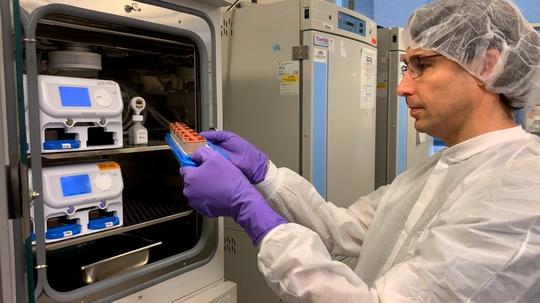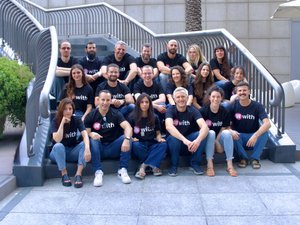
As the scientific community races toward potential treatments for Covid-19, the respiratory illness caused by the novel coronavirus that has now killed at least 116,000 Americans, researchers at Harvard's Wyss Institute are partnering with institutions across the U.S. on a new project using old materials.
The Wyss Institute has signed a one-year agreement worth up to $16 million with the U.S. Defense Advanced Research Projects Agency (DARPA) to identify and test FDA-approved drugs that could be repurposed to prevent or treat Covid-19. Scientists at Wyss are testing those drugs using Organ Chips, microfluidic devices lined with living human cells that were recently developed at the institute and are now produced by Wyss spinout Emulate.
This work actually began months ago. In January, Wyss founding director Donald Ingber's team began working with SARS-CoV-2—the novel coronavirus' scientific name—through a pseudotyping process. The team tested drugs that had been effective in related viruses, including SARS-CoV-1, MERS and Ebola, on the pseudotyped virus. If those results were promising, Ingber's team then tested the drugs on the Organ Chips to further narrow down which ones could effectively tackle SARS-CoV-2 in humans.
"We are testing hundreds of drugs," Ingber told BostInno. "With the funding, we're starting to use the computational drug-discovery pipeline, but we're testing hundreds of drugs in the early screens. That will come down to scores of drugs in the funnel."
Wyss researchers will also be able to test combinatorial approaches, or combinations of different drugs that can work effectively together even if they are not powerful on their own.
By leveraging the Wyss Institute's Organ Chips and computational pipeline technology, researchers hope to identify drugs that could work against Covid-19 more quickly and more accurately than what other approaches have been able to accomplish.
"This really came about because it's been such a haphazard way things are moving into the clinic. It was desperation mode," Ingber said. "Early on, it was clear we needed a more systematic, thoughtful way to do this. Now, we're able to do that."
The Wyss Institute is just square one in a collaborative pipeline the DARPA agreement is funding. As part of the grant, microbiologist Matthew Frieman's team at the University of Maryland School of Medicine is testing lead compounds in high-throughput, cell-based assays with SARS-CoV-2. The most promising drugs are then transferred to microbiologist Benjamin tenOever's lab at the Icahn School of Medicine at Mount Sinai for testing in Covid-19 animal models.
Frieman and tenOever are also setting up Organ Chip testing programs in their labs with equipment supplied by Emulate, which raised an undisclosed amount of funding to further develop Organ Chips earlier this spring.
If all goes well, clinical trials in humans will begin within three to six months, Ingber said.
"The level of response by the scientific, engineering and medical community the last few months has been so inspiring," Ingber said, adding that preprints and freely available data have advanced treatments for Covid-19 already. "It's helping everyone go faster and faster."








